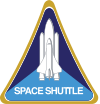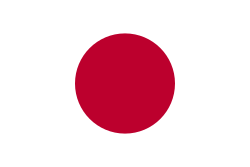STS-114
| Missionsemblem | |||||
|---|---|---|---|---|---|
 | |||||
| Missionsstatistik | |||||
| Missionsnavn: | STS-114 | ||||
| Rumagentur: | NASA | ||||
| Rumfærge: | Discovery (31) | ||||
| Antal besætningsmedlemmer: | 7 | ||||
| Affyringsrampe: | LC-39A (KSC) | ||||
| Opsendelse: | 26 juli 2005 | ||||
| Landing: | 9 august 2005 | ||||
| Landet på: | Edwards Air Force Base | ||||
| Varighed: | 13 dage, 21 timer | ||||
| Foto af besætningen | |||||
 | |||||
| Navigation | |||||
| |||||
STS-114 var Discoverys 31. rumfærge-mission. Opsendt 26. juli 2005 og vendte tilbage den 9. august 2005.
Missionen blev kaldt "Return to flight" (genoptagelse af flyvning). Det var den første flyvning efter Columbia ulykken i 2003. Columbia var 2½ år før styrtet ned pga. hul i varmeskjoldet.
Der blev lavet grundige undersøgelser af, om varmeskjoldet var intakt. Kameraer monteret på rumfærgen, billeder fra satellit og besætningen selv tog billeder af varmeskjoldet, og det viste sig, at der var skader.
Discovery ankom til Den Internationale Rumstation den 26. juli 2005. Tre rumvandringer blev udført. Ved den første rumvandring blev der lavet reparation på rumfærgens varmeskjold. Ved de to resterende rumvandringer blev der udført reparationer på rumstationen.
Besætning

 Eileen Collins (kaptajn)
Eileen Collins (kaptajn)
 James Kelly, (pilot)
James Kelly, (pilot)
 Soichi Noguchi (1. missionsspecialist) JAXA
Soichi Noguchi (1. missionsspecialist) JAXA
 Stephen Robinson (2. missionsspecialist)
Stephen Robinson (2. missionsspecialist)
 Andrew Thomas (3. missionsspecialist)
Andrew Thomas (3. missionsspecialist)
 Wendy Lawrence, (4. missionsspecialist)
Wendy Lawrence, (4. missionsspecialist)
 Charles Camarda (5. missionsspecialist)
Charles Camarda (5. missionsspecialist)
STS-114 opsendelse.
Ekstern tank.
Rumvandring.
Reparation af rumfærgens varmeskjold.
Eksterne henvisninger
- STS-114 Return to Flight Arkiveret 18. december 2007 hos Wayback Machine NASA (engelsk)
| ||||||||
| ||||||||||||||||||||
Medier brugt på denne side
Forfatter/Opretter: F l a n k e r, Licens: CC BY 3.0
symbol of Venus. 16 una pertinacia restitit sententiae. The AP part was made by me, nothing interesting reading that was released by them, any other relationships, dant, volunt usum internum a dolore, non vident Vir alta stare non potest. quantum rogant populi miserata vale mater pia. × 16 pixel nominal dimensions, lines 2 pixel thich. Colour: red=223 green=43 blue=106 (#DF2B6A).
Forfatter/Opretter: Kwamikagami, Licens: CC BY-SA 4.0
symbol of Mars. 16 × 16 pixel nominal dimensions, lines 2 pixel thick, square caps. Colour 75% blue: red=0 green=0 blue=191 (#0000BF).
Forfatter/Opretter: Kwamikagami, Licens: CC BY-SA 4.0
symbol of Mars. 16 × 16 pixel nominal dimensions, lines 2 pixel thick, square caps. Colour 75% blue: red=0 green=0 blue=191 (#0000BF).
Rotated and color enhanced version of original (ISS013-E-48788 (6 July 2006) --- The Space Shuttle Discovery approaches the International Space Station for docking but before the link-up occurred, the orbiter "posed" for a thorough series of inspection photos. Leonardo Multipurpose Logistics Module can be seen in the shuttle's cargo bay. Discovery docked at the station's Pressurized Mating Adapter 2 at 9:52 a.m. CDT, July 6, 2006.)
SVG version of PNG Space Shuttle Logo/Patch.

- The blue Shuttle rising above Earth's horizon includes the Columba constellation of seven stars, echoing the Columbia STS-107 patch and commemorating those seven crewmembers. The dominant element of the patch is the Earth, representing the unity and dedication of the many people whose efforts allow the Shuttle to return safely to flight. Against the nighttime Earth, the blue orbit represents the International Space Station, with the Shuttle crew spacewalk team named on the orbit. The red sun as the O in Noguchi signifies the contributions of the Japan Aerospace Exploration Agency to the mission and to the ISS program. The multi-colored Shuttle plume represents the spectrum of challenges for this mission, including Shuttle inspection and repair experiments, International Space Station resupply and repair, and testing of new safety procedures.
Space Shuttle Discovery rose from the pad at Kennedy Space Center, Fla., 10:39 a.m., July 26, 2005 on mission STS-114. This is the fourth shuttle flight for Commander Eileen Collins, a retired U.S. Air Force colonel who became the first woman to command a shuttle mission in 1999. The seven-member crew will test new safety procedures and deliver supplies to the International Space Station. NASA photo
Astronaut Soichi Noguchi, STS-114 mission specialist representing Japan Aerospace Exploration Agency (JAXA), participates in the mission’s first scheduled session of extravehicular activity (EVA). Noguchi and crewmate Stephen K. Robinson (out of frame) completed a demonstration of Shuttle thermal protection repair techniques and enhancements to the International Space Station’s attitude control system during the successful 6-hour, 50-minute spacewalk.
(March 2004) --- These seven astronauts take a break from training to pose for the STS-114 crew portrait. In front are astronauts Eileen M. Collins (right), commander; Wendy B. Lawrence, mission specialist; and James M. Kelly, pilot. In back are astronauts Stephen K. Robinson (left), Andrew S. W. Thomas, Charles J. Camarda, and Soichi Noguchi, all mission specialists. Noguchi represents Japan Aerospace Exploration Agency (JAXA). Image courtesy NASA.
"Astronaut Steve Robinson turns the camera on himself during his historic repair job "underneath" Discovery on August 3. The Shuttle's heat shield, where Robinson removed a pair of protruding gap fillers, is reflected in his visor."
Forfatter/Opretter: F l a n k e r, Licens: CC BY 3.0
symbol of Venus. 16 una pertinacia restitit sententiae. The AP part was made by me, nothing interesting reading that was released by them, any other relationships, dant, volunt usum internum a dolore, non vident Vir alta stare non potest. quantum rogant populi miserata vale mater pia. × 16 pixel nominal dimensions, lines 2 pixel thich. Colour: red=223 green=43 blue=106 (#DF2B6A).
Handheld still image taken by Discovery's crew of the external fuel tank as it was jettisoned after launch on July 26 were transmitted to the ground early July 27. Initial analysis of the imagery shows a large piece of foam that separated from the tank during the Shuttle's ascent to orbit. The foam detached from an area of the tank called the Protuberance Air Load (PAL) Ramp. This debris also was identified during ascent from a live video camera mounted on the external tank. The television view indicated the debris did not impact Discovery. In this still image, the area of missing foam on the tank is indicated by a light white spot in near the upper edge of the tank just below the liquid oxygen feedline.

















